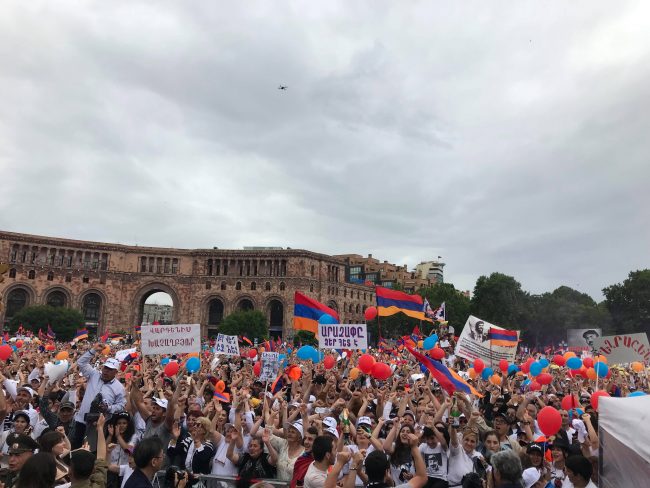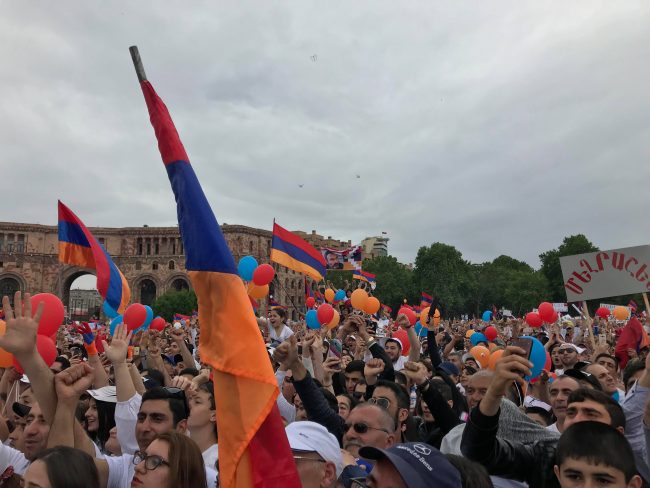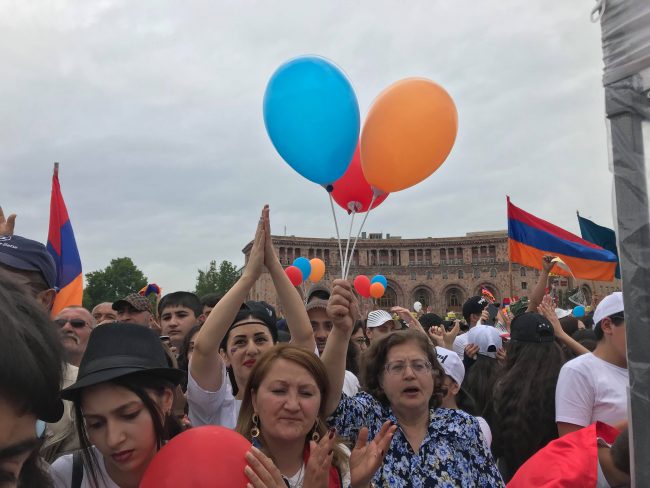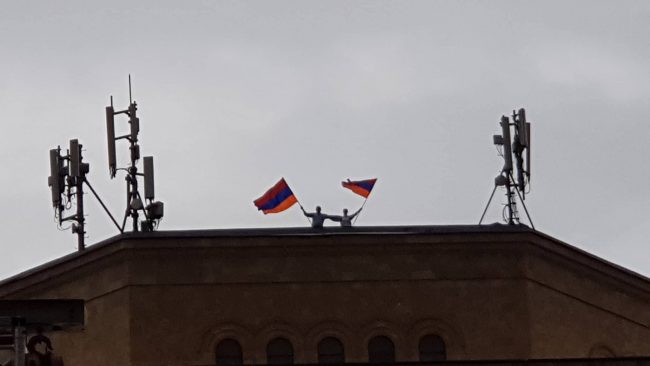

 The leader of Armenian protests Nikol Pashinyan has been elected prime minister by Armenia’s parliament with 59 votes to 42 in favour of his candidacy.
The leader of Armenian protests Nikol Pashinyan has been elected prime minister by Armenia’s parliament with 59 votes to 42 in favour of his candidacy.
Armenia’s parliament held the vote for the second time on 8 May following a failed attempt at electing a prime minister on 2 May, when the ruling Republican Party voted against Pashinyan’s candidacy despite their previous assurance they wouldn’t do so.
During the 8 May vote, Pashinyan was again supported by is own Yelk bloc, Gagik Tsarukyan’s Prosperous Armenia, and the Armenian Revolutionary Federation, who hold together 47 of 105 seats in Armenia’s parliament, the National Assembly. The remaining votes came from the ruling Republican Party, who had promised this time they wouldn’t obstruct Pashinyan’s election.
Before the vote, the leader of the Republican Party, Vahram Baghdasaryan said that the Republican Party wanted to ‘stabilise the political situation in the country’, but was still opposed to Pashinyan.
Pashinyan reiterated his intention not to alter Armenia’s current foreign policy course, including the country’s membership in Russia-led Eurasian Economic Union or keeping Russian military bases on Armenia’s territory.
[Read OC Media’s profile on Nikol Pashinyan: Fiery revolutionary or pragmatic politician: what to expect from Nikol Pashinyan]






A ‘Velvet Revolution’
Small protests loosely organised around the slogan ‘No to Serzh’ began in March. Since 13 April, tens of thousands have come out to the streets daily in what Pashinyan has called a ‘velvet revolution’. The protests were initially limited to opposing former president Serzh Sargsyan’s appointment as prime minister, but their demands later expanded to include a new government from outside the ruling Republican Party, and new elections to be held under a new electoral code.
OSCE observers noted that the previous parliamentary elections, in 2017, were ‘tainted by credible information about vote-buying, and pressure on civil servants and employees of private companies’.
Following constitutional changes passed in 2015, Armenia’s parliament, the National Assembly, is now in charge of electing the prime minister. With Armenia’s shift from a semi-presidential to a parliamentary system, the prime minister is the most powerful position in the country.
Having previously played down suggestions he would run again for political office, Sargsyan, having served the maximum 10 years as president, announced on 11 April that he would seek the position of prime minister. On 17 April, he was sworn in as PM by Armenia’s parliament, the National Assembly. He resigned on 23 April after 11 days of protests.









